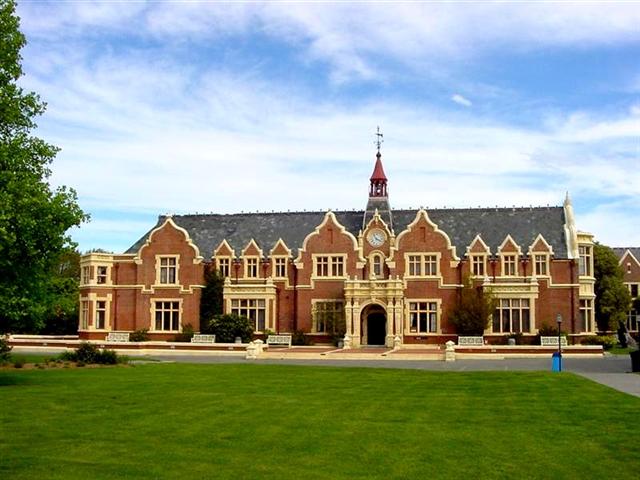Professor Bruce McKenzie is spending his last days in the job as Acting Vice-Chancellor of Lincoln University before he returns to a teaching role at the University in the New Year.
As a Professor of Agronomy, he will re-join his former faculty to teach plant science to a new cohort of Lincoln University students, and is excited to start the new phase of his career. He says:
“Teaching is one of my great passions, and I’m really looking forward to taking up the mantle again, as well as easing myself back into doing some research.
“It has been an honour to serve as Acting Vice-Chancellor, and I’m very grateful for being given the opportunity.
“I’m stepping aside at the right time. The University is in a good space, and we’ve been financially stable for an extended period.
“Our Lincoln University Strategy 2019-2028 remains the key driver for our growth, financial sustainability and ultimate realisation of becoming a globally-ranked, top-five land-based university.
“We have also created a vibrant and inspiring campus for our students through the launch of our campus development programme, and have successfully completed a number of our key projects – on time and on budget.”
Initially appointed as Acting Vice-Chancellor in January 2019 for a term of 18 months, Professor McKenzie was reappointed in July last year for a further 18-month term , ending on 31 December 2021.
Appointed at a time when the Government was considering a proposal, later shelved, for a formal partnership between Lincoln University and the University of Canterbury (UC), Professor McKenzie delivered the solid, stable stewardship and engaging, inclusive leadership needed to guide the University through the change process.
Perhaps the most formidable challenge faced during his tenure came in his second term in the job, when he adroitly steered Lincoln University through the devastating effects of the global COVID-19 pandemic.
“The last two years have presented unparalleled challenges for our University, but our academic staff continued to provide teaching and research of the very highest quality, while our professional staff have safeguarded our reputation and maintained the smooth running of our operations,” said Professor McKenzie.
“I feel deeply proud of the ways in which all our whānau have risen to the challenges that confronted them in a period of time like no other.”
Despite pandemic-related constraints on international enrolments, Lincoln’s student headcount in 2021 achieved a 10-year high.
Professor McKenzie says that getting through COVID challenges together has given New Zealanders an increased understanding of where their food comes from.
“Our country’s agriculture sector is almost solely responsible for pulling us out of a very big economic hole, and people’s interest in food and fibre production has taken off in the last two years.
“Being a specialist land-based university, Lincoln University is well placed to contribute significantly to a more productive and sustainable future for Aotearoa and beyond.”
By the second quarter of 2019 a comprehensive programme of campus development projects spanning 2019 to 2028 had been approved and set in motion, with major projects including two new science facilities, an ambitious makeover for the recreation centre, the creation of new student social spaces and a reimagined landscape masterplan that will connect the University’s built and human environments while also showcasing its land-based values and incorporating its unique cultural narrative.
Throughout his time as Acting Vice-Chancellor, Professor McKenzie remained focused on developing strategic relationships with like-minded organisations, including CRIs, iwi, central and local government agencies, industry and other universities.
In particular, the close ties formed with the University of Canterbury during the partnership proposal process continued to yield mutually beneficial joint projects, including a jointly-taught master’s programme in precision agriculture and the establishment, together with the University of Canterbury, of Te Mātāpuna Mātātahi | Children’s University.
Food Transitions 2050, a postgraduate school focused on supporting New Zealand’s transition to more future-proofed, sustainable food systems, was conceived as a partnership project between Lincoln and UC and ultimately launched in late 2020 with the added participation of all CRIs based in the Lincoln area.
Lincoln University’s long-term relationship with its closest neighbour AgResearch was further boosted in 2019 with the sale of a parcel of land on the University’s Te Waihora campus to AgResearch to allow the construction of a major new science facility for the CRI.
The University’s close relationship with Te Taumutu Rūnanga was deepened in 2019 through renewing and strengthening the Memorandum of Agreement between the two entities.
Professor Grant Edwards, Deputy Vice-Chancellor, will succeed Professor McKenzie as Vice-Chancellor on 1 January 2022.
Professor Grant Edwards, the latest guest on the Influencers@Lincoln podcast, discusses his journey to Lincoln as a student and academic with Dr Hafsa Ahmed, as well as his aspirations for the University.
The monthly podcast on PlainsFM highlights some of the world-class research and programmes at Lincoln, as well as some of its new developments.
Listen here .
Source: Lincoln University












